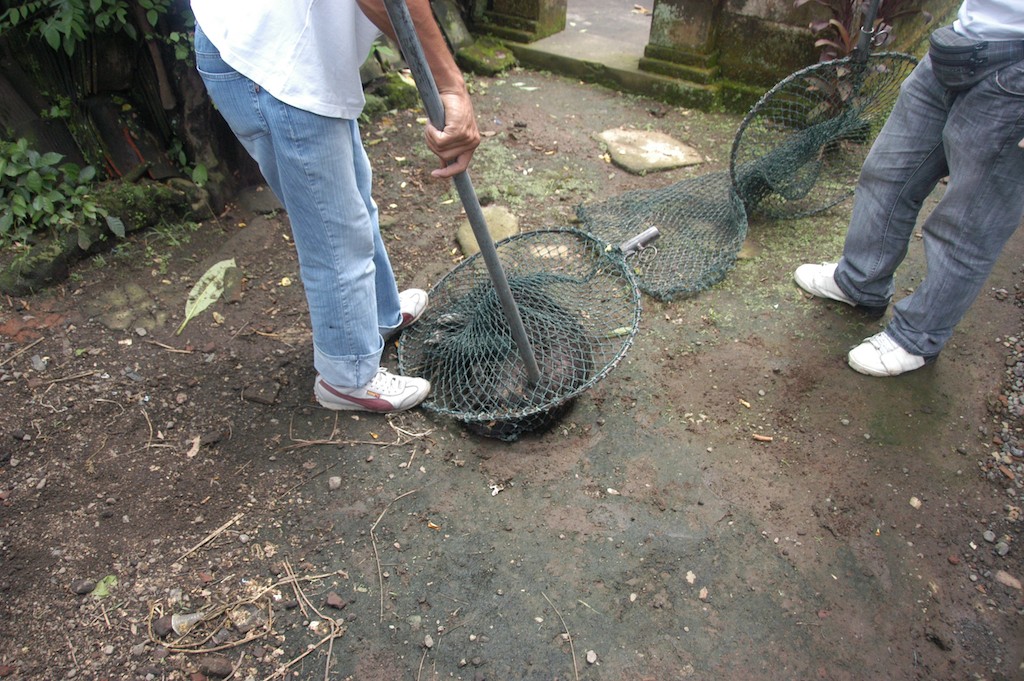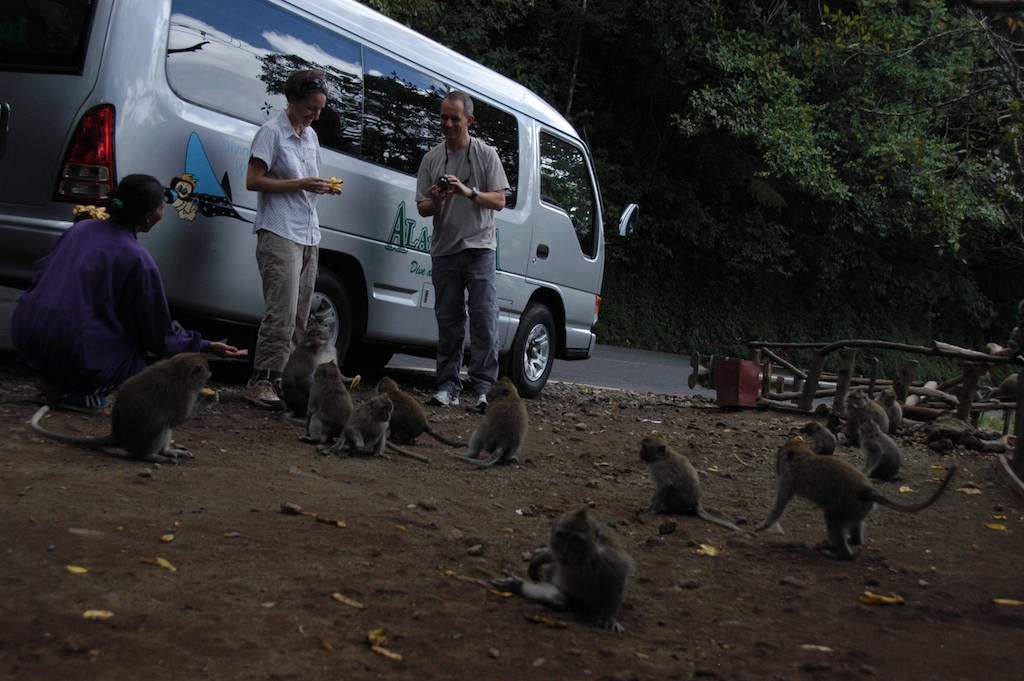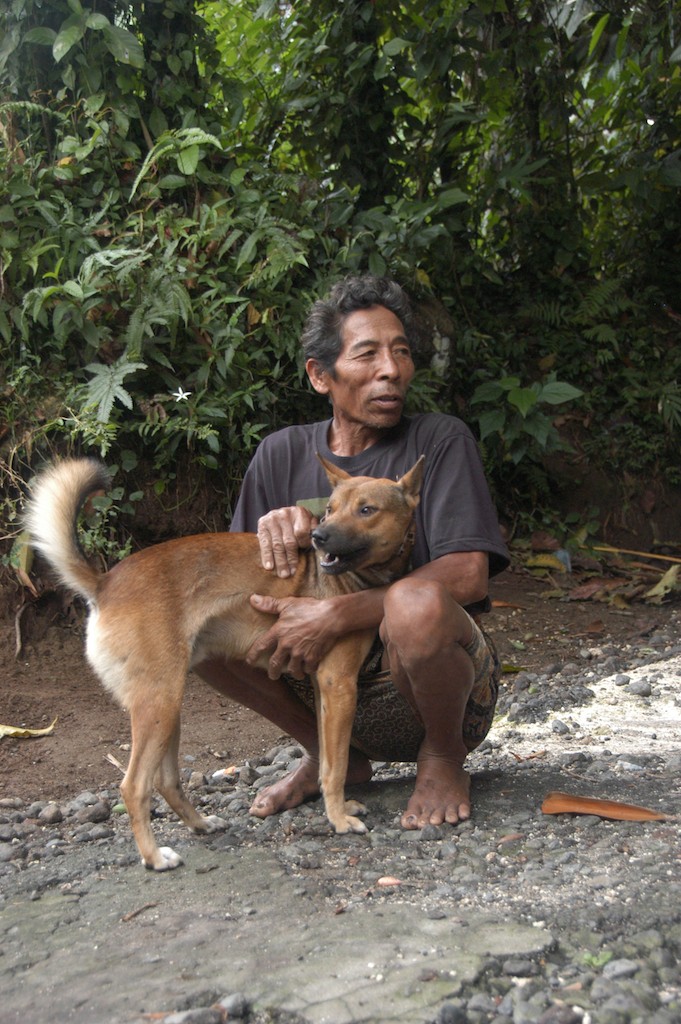
If you've ever seen video of humans infected with rabies you've most likely placed it at the top of your "avoid this" list. When a rabid animal bites, it injects virus into the wound. The virus lies hidden and insidiously travels from the periphery to the spinal cord and brain (the central nervous system or CNS). This process can take up to 6 months, depending on how far the virus must travel to reach the CNS. Once it reaches the central nervous system it causes inflammation leading to fever, pain, partial paralysis, difficulty swallowing, hallucinations, and paranoia. Within 10 days of showing signs, the infected human is dead. The disease is virtually 100% fatal.
September 28th World Rabies Day serves as a reminder of the dangers of the deadly rabies virus that kills roughly 55,000 people worldwide per year. To those in the U.S. this number may mean very little. Although 7000 cases of animal rabies--primarily in raccoons, skunks and bats--are reported yearly, only 1-3 human rabies cases occur yearly in the U.S. But if over 130 people in an area roughly the size of Connecticut had died of this infection and over 100,000 dogs had been killed in the name of rabies eradication, your view would be quiet different.
Janice Girardi, founder and director of Bali Animal Welfare Organization (www.BawaBali.org) has been living through this experience for the last three years and has taken on a huge role as rabies educator and eradicator; helping the Bali government to control the disease.
For the 30 years that Girardi has lived on this resort island that makes up one of the 17,000 islands of Indonesian archipelago, rabies was never a problem. Bali had been rabies free. But the Bali-street dogs population has always been high. Then, says Girardi, whose non-profit organization has focused on spay/neuter and vaccination programs since its creation 5 years ago, "In November 2008 we had our first rabies death on Bali. It was followed slowly at first by others."
The government's first response was in line with that of other developing countries with little funds for healthcare and a lack of vaccines--they sought to rid the island of its 350,000 dogs. First, they left meat laced with strychnine. When many dogs learned to avoid the meat, they switched to darting the dogs. Vaccination was not a priority for dogs or for humans who had been bitten yet because Indonesia had a law at that time that declared rabies vaccines and rabies vaccination to be illegal unless you have the disease. That means that even humans who were bitten could not receive the series of four preventive vaccinations. Furthermore the immunoglobulin that can be given to bite victims post-exposure was not licensed either.
"So when rabies hit there (in Bali) weren't even any effective vaccines available," Says Girardi. "It took almost a year to get a good long-acting vaccine like we have in the U.S."
Not surprisingly, when I visited in 2009 and volunteered at BAWA, which is how I met Girardi, it was clear that the attempt to eradicate rabies was not working. During my short stay, the newspaper reported several more individuals had died of rabies in previously rabies free-areas of the island.

Bali-street dogs, many of whom are fed and even
owned by villagers, are caught in nets and then vaccinated,
an identification collar placed, and then released as a
part of the rabies eradication program.
The lack of success was no surprise to epidemiologists who study rabies epidemics. According to Francois-Xavier Meslin, leader of the World Health Organization's Neglected Zoonotic Diseases team in Geneva, "The problem is that killing dogs, the favored method for dealing with rabies in much of the developing world, simply creates a "vacuum effect" whereby infected dogs move into the areas where culling has occurred."
A herd health-vaccination approach
Bali has a human population of nearly 4 million people who are fond of their estimated 350,000 dogs. It's not possible for the government to kill every single dog, especially since the island residents, most of whom are Hindu, love animals, as compared to the other Indonesian islands that are primarily Muslim, where stray dogs are viewed as vermin and destroyed. Additionally, most Bali dogs are intact leading to a huge puppy population, which replaces the dogs that have died. Due to this common dog population profile, epidemiologist and veterinarians trained in herd health recommend widespread vaccination of dogs in rabies epidemic areas as the only effective way to control rabies in places such as Bali.
But vaccinating 70% of 350,000 free-roaming dogs on an island where the average citizen has a little formal education and are so poor that they have trouble feeding their children. Luckily some assistance was on the way. With the guidance of epidemiologists from the University of Glasgow, Girardi formulated a way to help both the citizens and the dogs of Bali.
Says Girardi, "Epidemiologists from the University of Glasgow along with the World Society for the Protection of Animals (WSPA) came and assessed the situation. They mapped out how the virus would spread if it was not controlled and then based on this epidemiologic mapping, they recommended we find a way to vaccinate 70% of the population of dogs within 6 months."
Why 70%? It has to do with the herd-health approach. " If 70% of dogs are vaccinated and a rabid dog comes in, it can still bite a human and cause death and bite unvaccinated dogs and cause death," states Girardi, "but it will not cause an epidemic because enough dogs are vaccinated so the disease will die out."
For example, if a rabid dog bites 3 other dogs and 2 of these dogs are vaccinated, only one will get disease and according to epidemiologists, the epidemic will die out.
On the other hand if few dogs are vaccinated in a non-rabies population and a dog with rabies bites three dogs, all three dogs may get rabies and each may potentially bite another three, and so on, leading to a rapid increase in the rabies population.
The number of dogs to vaccinate was important but the 6-month time frame was crucial too.
"The turnover rate of dogs in Bali is fast," says Girardi. "Many dogs die because they are hit by cars or they get parvovirus or distemper or other diseases and many puppies are born. So the longer we took, the more likely out vaccinated dogs would be dying out of the population."
Could a vaccination program be carried out?
Seventy percent of 350,000 dogs is a huge number and a big expense for the government, so there was skepticism regarding whether such a program could be carried out effectively. Girardi believed it could be done so she spearheaded a pilot program to prove that large-scale capture of and vaccination of free-roaming dogs. In December of 2009, with $5000 donated by Best Friends Animal Sanctuary and 45,000 vaccines from the World Society Protection Association (WSPA) along with her personal savings, Girardi and her organization started capturing and vaccinating dogs in Gianyar, one of the nine Bali Provinces. The 36 teams of 6 members each reached their goal of vaccinating more than 70% of the Gianyar dogs within 6 months.
Next, they moved to Bangli region with funding from WSPA from June through August 2010 and after that, they got the go-ahead to take the program nationwide. The epidemiologists recommend that the vaccinations occur in three island-wide phases and WSPA and IFAW agreed to fund phase I. From October 1 2010 to March 31, 2011 over 250,000 of the 300,000 dogs --their final dog count-- in Bali were vaccinated.
This was no small feat because it involved more than meets the eye. "For the first two pilot programs of Gaiyar and Bangli we spoke to all of the village leaders to get them to agree in writing that if we vaccinated the dogs, neither they nor the government would cull the dogs," states Girardi. For phase I of the island-wide program we had a signature from the Governor and all of the Mayors, which took 6 months.
"Killing of vaccinated dogs would undermine our program because it would reduce the population herd health. We ran phase I with 52 teams and 6-7 people per team. Each member was prevaccinated against rabies and went through a 3 week training period where they were taught how to catch dogs with nets on the street, vaccinate them without getting bitten, then place a collar or spray paint so they could tell who had been vaccinated. Then they would survey the dog population in an area to ensure that 70% were vaccinated prior to moving on to another village.
The program was intense and expensive and funded primarily by Girardi herself. She put up about $100,000 of her own savings from her primary business--Girardi is a popular designer of jewelry, which is sold worldwide in catalogues such as Sundance and Red Envelope. But her efforts and money paid off. They had trained 430 staff island-wide that could be used for phases II and III of the program and they could see a difference.
Says Girardi, "If you compare a 4-5 month period this year versus in 2010, you see a drastic reduction in confirmed dog rabies cases and human rabies cases. We went from 250 positive villages to 48. We also had a 75 and 85% reduction in human and dog cases of rabies."
On top of this the villagers are more aware that they should be concerned if bitten so more villagers are actually reporting when they are bitten by any dog and getting the post exposure treatment (PEP) as recommended by the World Health Organization (WHO), a series of 4-5 rabies vaccinations to prevent potential disease.
Now, the Food and Agricultural Organization (FAO) of the United Nations is working with the government on phase II and III of the rabies program to keep the population vaccination numbers at 70%. The government is using the workers that BAWA-Bali trained to repeat the vaccination process again.
"Realistically it needs to be continued even after phase III, because in a country like Bali, in four years, many of the vaccinated dogs will have died, plus dogs with rabies may still enter the country."
In spite of the cost, vaccinating dogs is cheaper than vaccinating humans who are bitten. It costs about $3.00 to vaccinate a dog, but if someone is bitten by a dog who may or may not have rabies the series of vaccines costs over $50.00. Treatment with protective immunoglobulin costs even more and is often prohibitively expense if it is even available.
For example, says Girardi, "When one local 5-year old girl whose parents could not afford treatment was bitten by a rabies infected dog, it cost $500 for me to help get her treated. When our BAWA-Bali night guard was bitten, I paid $1400.00 for immunoglobulin treatment for him."
Education is the key
While the government has taken to the vaccination, there's still much for Bawa- Bali to do. Says Girardi, "Education is the key." In her experience, more people are being bitten by dogs than ever before, because the villagers are now afraid of the dogs and acting out of their fear.
"I've never been bitten by a Bali street dog but the villagers sometimes are because they are now panicked about being bitten instead of just being mindful of their interactions. They use sticks to keep the dogs away from them or kick them to get them away and this causes the dogs to become defensively aggressive."
Indeed during my time in Bali, the street dogs were probably safer than the macaque monkeys. When you ignore them the dogs ignore you. If you approach they try to avoid you. This is in contrast to the Macaque monkeys in areas where they are fed by tourists. These monkeys may jump on people to steal food and even bite. Macaques harbor Herpes B, which generally leads to fatal encephalopathy (brain swelling) in humans.

Tourists often feed the macaques which eventually leads to
macaques who steal food from humans and sometimes bite.
Macaques harbor herpes B which usually results in fatal
inflammation of the brain (encephalomyelitis).
Girardi states, "If a dog is rabid you can see the symptoms and know it. The Balinese need to know which dogs to fear and to understand dog behavior and how to avoid being bitten.
Another recent problem is that to reduce the roaming population and overall number of dogs, the government has required that all pet dogs be chained or caged on their owner's property. In the U.S., on the other hand, some cities have banned chaining of dogs for prolonged periods of time.
Of course the problem with chaining and caging is that these dogs do not receive proper socialization and are then are more likely to become fearful and defensively aggressive with dogs and people as well as territorially aggressive to people who enter the property. This is something the villagers may not understand yet. But one alarming trend that BAWA-Bali does see is that they are getting many dogs who are left in cages without food or water when owners travel or who have chain collars that are embedded in their neck. The Bali villagers need to be taught how to care for their dogs--that dogs require food, water, medicine, shelter and exercise and are social animals. They can't leave them in a cage for days or in some cases weeks at a time without care.
The solution to roaming dogs and overpopulation
Overall, the real solution to cutting the population of street dogs down is for villagers to have their dogs spayed or neutered and to feed and care for the ones they keep. This way dogs will tend to stay on their own property instead of needing to wander the streets for food.
"My dogs choose to stay on my property and only go off when I come home and walk to the river," states Girardi. "They could go to the river any time on their own but they choose to stay home and are so excited to accompany me on my walk. They are desexed and have good food and other dogs to play with at home, so they have no urge to go elsewhere on their own.
BAWA-Bali sterilizes on average 20 dogs a day and houses up to 125 cats and dogs in on any given day in their clinic. " We adopted out 90 dogs in June," says Girardi. "This includes making a home visit and training the villagers how to feed and care for their pet and then following up after the pet has been adopted."

A Balinese man brings his dog to a spay-neuter
clinic run by Bawabali (www.bawabali.org)
If you're looking to combine your vacation with a worthwhile cause, consider volunteering at BAWA-Bali for a several days or more. The average cost to stay in Bali is about $30 per day making for an affordable trip. Volunteers can work in the office or helping to educate the public. Those working in the clinic must be vaccinated for rabies before they arrive. Donations are very much needed and can also be made to Bawa-Bali at www.bawabali.org. BAWA-Bali is a nonprofit organization with 501(c)3 status in the U.S.
To find out more about dogs in Bali, read Dogs in Bali Learn Some Dog Tricks.